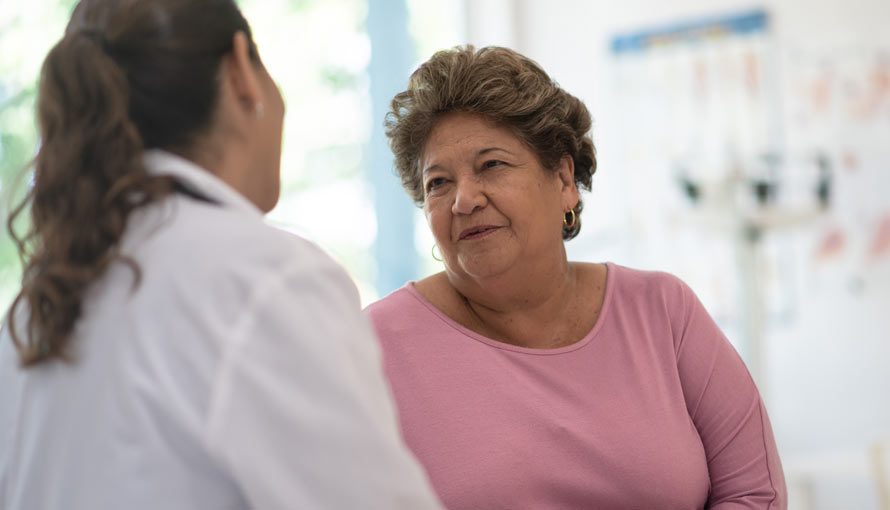
Who Is at High Risk for Ovarian Cancer?
All women are at risk of developing ovarian cancer, which occurs when abnormal cells grow out of control in the female organs that produce eggs (ovaries). According to recent research studies, approximately one in every 78 women will develop ovarian cancer at some point during her lifetime. Some women have personal or familial factors that further increase this risk.
An average or slightly increased risk
In general, a woman is considered to be at average risk (a lifetime risk of approximately one in 75) of developing ovarian cancer if she:
- Does not have any family history of ovarian or breast cancer
- Never experienced difficulty getting pregnant
- Has never taken hormone replacement therapy
A woman’s risk of developing ovarian cancer increases slightly (to a lifetime risk of up to one in 20) if she:
- Has a history of infertility
- Used medications to aid in getting pregnant
- Has a history of endometriosis
- Took hormone replacement therapy to ease her menopause symptoms
- Developed breast cancer after age 40
A moderately increased risk
A woman’s risk of developing ovarian cancer increases moderately (to a lifetime risk of up to one in 10) if she:
- Has a mother, sister or daughter who had ovarian cancer
- Had breast cancer before age 40
- Had breast cancer before age 50 and has one or more close blood relatives who had ovarian or breast cancer at any age
- Has two or more close blood relatives who had ovarian cancer at any age or breast cancer before the age of 50
- Is of Eastern European (Ashkenazi) Jewish heritage and had breast cancer before age 50, has a close blood relative who had breast cancer before age 50 or has a close blood relative who had ovarian cancer at any age
- Had uterine cancer before age 50
- Has a close blood relative who had uterine cancer before age 50
- Had colon cancer before age 50
- Has a close blood relative who had colon cancer before age 50
A very high risk
A woman’s risk of developing ovarian cancer increases significantly (to a lifetime risk of up to one in two) if she:
- Had genetic testing that revealed a change in her BRCA1 or BRCA2 genes
- Had genetic testing that revealed a change in her MLH1, MSH2 or MSH6 genes (Lynch Syndrome)
If you would like to discuss your individual risk profile with an ovarian cancer specialist in the gynecological clinic at Moffitt Cancer Center, you can request an appointment by calling 1-888-663-3488 or completing our new patient registration form online.
